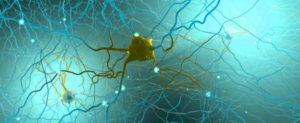
Facts About Nerve Pain
The feeling of grief has always existed in our lives. Not many people know that grief can be horrible – that it can suck our pleasure and joy – and last for several years or even years. Hence, living with nerve pain can be a serious problem to most people.
The Percentage of People Suffering from Nerve Pain
Until I started working on this manual, I never realized that both chronic and persistent pain, those that last more than three weeks, have such an impact on people all over the world. About 20% of people suffer from pain lasting more than three months at any given time on Earth. This prevalence rises to one in three people over 65 years of age. It has been shown that in the first few days of recovery after an injury or surgery, less pain is required so that hospital patients can breathe much better with much less pain. This is of vital importance. Besides, they feel stressed, can break, and experience faster-wound healing. This has been demonstrated by studies conducted in Europe.
One in three patients is unable to maintain an independent lifestyle. One in five suffered from depression because of melancholy, and 17% of them endured it so much that they wanted to die for a few days. How is it possible that all these people worldwide suffer from pain? With all the advances in medicine, I can say that pain is much more frequent, more complex, and occurs in various conditions. However, some measures have been shown to increase the paralyzing illness. Pain experts agree that acquiring knowledge about how pain works will change your relationship with it. The beauty of pain is that it is no longer necessary when it affects your meaning. So if your pain indicates that your tissue is in danger, you should feel pain.
The Types of Pain
This type of pain is called “nociceptive pain.” Inflammatory pain: After the initial injury, a different kind of pain is likely to occur, called “inflammatory nociceptive pain.” These chemicals talk to each other to help the issues recover. There is usually swelling associated with the injury. Persistent pain can be caused by all types of pain and generally by “mild” pain: both inflammatory and acute. Immediately after the injury, the pain can protect you from movement or twisting, making your suffering even worse. This is logical because from there, it can change. Wise minds stop thinking that they are still in danger and need protection. What can make you feel that you are in trouble and need protection? In our modern world, it is usually not monsters who attack.
